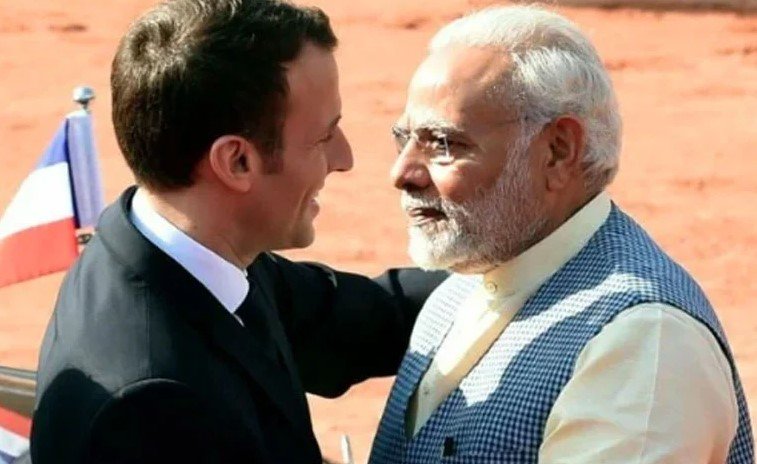India’s Prime Minister Narendra Modi and French President Emmanuel Macron are aligning their visions on technological independence as they prepare to co-chair the Artificial Intelligence Action Summit in Paris. The meeting, scheduled for Tuesday, is expected to highlight their shared stance on reducing reliance on global tech giants while fostering independent innovation.
India and France Stand United on AI Leadership
Macron, in an interview with Firstpost, emphasized that both India and France are determined to carve out their own technological path. He noted that the two nations share a “deep-seated conviction” about the need to be independent in AI and other emerging fields. While acknowledging partnerships with the U.S. and China, he stressed that dependency was not an option.
The AI summit will focus on developing policies to support local tech ecosystems and promote ethical AI development. India, with its booming digital economy and massive talent pool, is seen as a crucial player. France, meanwhile, has been investing heavily in AI research and aims to position itself as a European leader in the field.

What’s at Stake for India and France?
The emphasis on technological sovereignty is not just rhetoric. Both nations face mounting geopolitical and economic challenges that make reducing reliance on foreign technology a strategic necessity.
- Data security concerns: With growing apprehensions about data privacy and cybersecurity, both countries want to ensure AI advancements align with national security interests.
- Economic competitiveness: AI-driven industries are expected to contribute trillions to the global economy. India and France aim to secure a significant share by fostering local innovations.
- Geopolitical balance: Dependency on U.S. and Chinese tech giants raises concerns about political leverage. Macron and Modi want to ensure they have control over key technologies.
Macron pointed out that their approach is not about isolation but about fostering “technologies and partners that we can trust without dependencies.”
The Broader Implications for Global AI Development
The Modi-Macron initiative has broader consequences for the international AI landscape. By championing technological self-reliance, they are challenging the dominance of Silicon Valley and Beijing-led innovations.
Some experts believe that this push for sovereignty could encourage other countries to develop independent AI policies. The European Union, for instance, has been drafting AI regulations aimed at reducing reliance on external tech firms. India has also been strengthening its regulatory framework, with policies focusing on ethical AI use and local data storage requirements.
This shift could lead to more diversified AI ecosystems, with different nations adopting varied models of development and governance. It may also spark debates on how much AI regulation is necessary versus how much innovation should be left to the free market.
AI Summit: Key Discussions to Watch
With Modi and Macron at the helm, the AI summit is expected to cover several pressing topics:
- AI Ethics and Governance: Crafting policies that ensure AI is used responsibly and does not reinforce biases or privacy violations.
- Investment in Local Startups: Encouraging homegrown AI firms to compete with global tech giants.
- Cross-border Collaboration: Finding ways to collaborate with trusted partners without becoming overly reliant on them.
- Military and Security AI: Exploring the role of AI in defense and ensuring it does not pose threats to national security.
The discussions are likely to set the stage for future AI policies in both countries and potentially influence global AI governance frameworks.
Looking Ahead: Will Tech Sovereignty Become the Norm?
The Modi-Macron partnership on AI could signal a broader trend where more countries seek to control their own technological futures. While complete independence may be unrealistic, reducing over-reliance on a handful of tech giants could lead to a more balanced global AI landscape.
For India, the summit represents an opportunity to assert itself as a major AI powerhouse, leveraging its skilled workforce and growing tech sector. For France, it is a chance to cement its status as a leader in European AI innovation.
As AI continues to shape industries and economies worldwide, the push for sovereignty may not just be a political statement—it could be a defining strategy for the future of technology.
